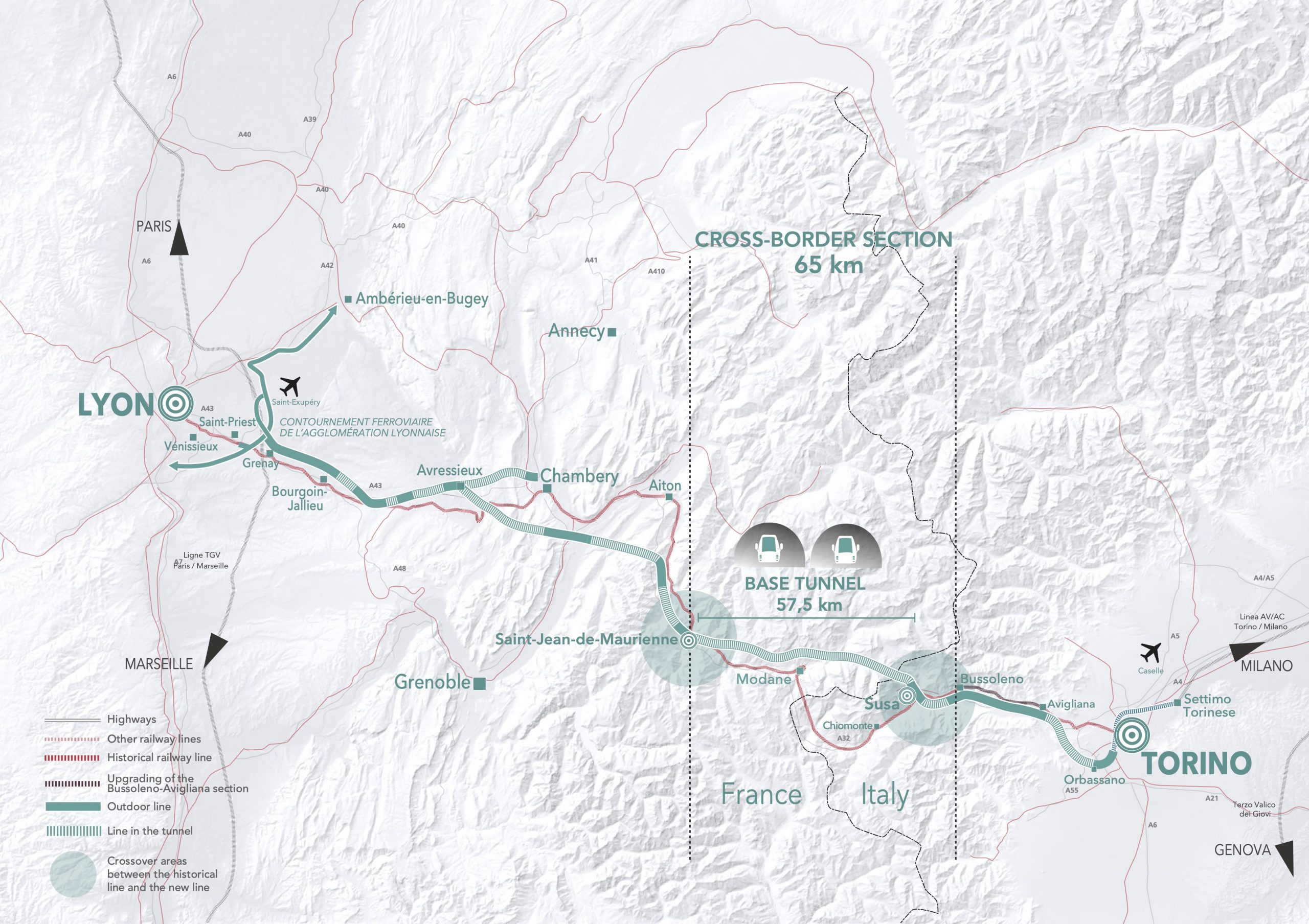The European Commission (EC) is to provide additional funding of almost 765 million euros towards developing a cross-border rail link between France and Italy–the infamous Turin-Lyon tunnel.
The subsidies form part of a ‘record’ package of funding totalling over 7 billion euros in EU grants from the Connecting Europe Facility (CEF), the bloc’s instrument for strategic investment in infrastructure. This represents the largest call under the current CEF Transport programme.
700 million euros has been allocated to the controversial project, which entails the construction of two 57.5-km tubes for the Mont Cenis base tunnel and 48 km of safety and maintenance tunnels. The sum will be paid to TELT (Tunnel Euralpin Lyon-Turin), the Franco-Italian public company set up in 2015 to manage the project.
The Turin-Lyon tunnel saga
Aiming to enhance rail capacity for passenger and freight traffic, the tunnel will enter service in 2032 and constitute the world’s longest rail tunnel. To date, 37 km have been excavated, including 13.5 km for the base tunnel.
The project is supported by public authorities and economic players in France and Italy, who view it as a significant opportunity to develop rail freight and take many trucks plying trans-Alpine routes off the roads.
However, it does have detractors in both France and Italy who point to the rail link’s impact on the natural environment and view its projected investment costs as exorbitant. The French Court of Auditors estimated these at more than 26 billion euros in 2012. A more recent figure has not been disclosed.
French line design also funded by the EU
The European Commission has also approved EU funding of close to 64.6 million euros for preliminary detailed design studies to determine the rail line route between Lyon and the base tunnel. This has been estimated at 170 million euros, with the French state and public authorities also contributing to this sum.
Undertaken by France’s rail network manager, SNCF Réseau, the studies will include collecting technical and environmental data for the design of the new line, defining the construction principles, launching the preliminary administrative procedures, and conducting dialogue with stakeholders. They are expected to begin in early 2025 and take three years to complete.
Three kilometres per month
Construction work is set to ramp up in the coming months. Quoted in the French media earlier this month, Lionel Gros, TELT’s deputy managing director in France, commented: “The first of the seven tunnel boring machines is due to arrive soon and will be assembled in August so that the base tunnel can be dug from 2025 onwards.”
He added: “Today, we are digging 400 meters a month. When the seven tunnel boring machines are operational, we will advance at a rate of three kilometres per month.”
